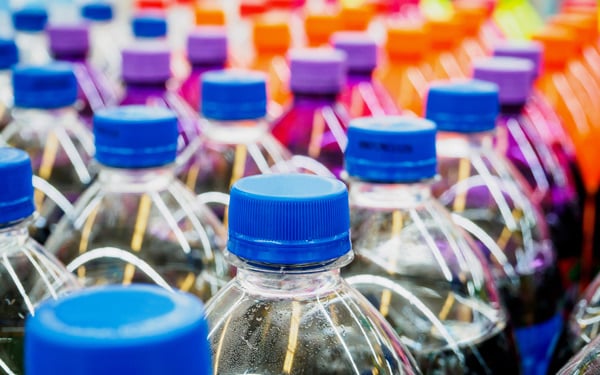It’s 5 years since the UK started taxing soft drinks containing sugar – known as the Soft Drinks Industry Levy (SDIL). The aim is to encourage reformulation by manufacturers to reduce the sugar content in soft drinks containing added sugar, such as fizzy drinks. Milk alternatives, infant formula, fruit and vegetable juices, and drinks that are at least 75% milk are not subject to the tax. The levy aims to cut childhood obesity in the UK through reducing sugar consumption, and has a tiered structure with 2 different rates based on the sugar content of drinks.
Emerging evidence shows that the levy is having an impact by encouraging reformulation and decreasing the volume of sugar purchased through soft drinks. One study found positive associations between the levy and a reduction in obesity among girls aged 10 and 11 years old, with the greatest reduction among the most deprived children. And it is estimated that the tax was associated with preventing over 5,000 cases of obesity in girls in Year Six in England. This is something we should celebrate, as the tax seems to be achieving what it set out to do.
Why we need sugar taxes
Taxes on sugary drinks form one part of the comprehensive approach needed to tackle cancer and other non-communicable diseases (NCDs), such as type 2 diabetes. Our Cancer Prevention Recommendation to limit consumption of sugary drinks is because they contribute to the global rise in obesity, which increases the risk of at least 13 cancers. A sugar tax can therefore help to reduce the burden on healthcare.
People in the UK and around the globe are drinking more sugar sweetened drinks, which are high in calories and offer no nutritional value. Alarmingly, almost 1 in 5 teenagers in Europe drink sugary soft drinks daily.
Latin America leads the way
At World Cancer Research Fund International, we monitor and share policy developments in this area in our NOURISHING database. Globally, an increasing number of countries have implemented a soft drinks tax, including 16 European countries. In Latin America and the Caribbean, 21 countries have implemented sugary drinks taxes (pdf). Mexico introduced its tax in 2014 to tackle one of the highest levels of NCDs in the world. Two years later, Mexico saw a staggering 9.7% drop in sales (pdf) of sugary drinks – with sales of bottled water increasing. The government in Barbados doubled the excise tax on sugary drinks last year.
However, having a tax in place is not enough. Policy design matters (pdf) and impacts how effective taxes are. The tiered structure for the sugary drinks tax in the UK was a key design element for industry in encouraging reformulation. Sugar-sweetened beverage taxes should:
- be informed by nutrient profile model
- not include unjustified exemption
- target producers, rather than consumers, to encourage reformulation
Our Building Momentum report, Lessons on implementing a robust sugar sweetened beverage tax, has much more detail on good policy design and is free to download.
Looking forward to the next 5 years
We need to consider the impact of advertising on the consumption of soft drinks. Governments globally also need to look at other sources of sugar: the food we buy. In 2017, the UK government set a target of a 20% reduction in sugar intake by 2020 – which has not been met. The sugary drinks tax was part of the strategy, but is proving much more effective because it is mandatory and does not rely on food companies to voluntarily cut sugar in their products.
As a result of the levy in the UK, more than 47,000 tonnes of sugar has been removed from soft drinks (pdf) every year between 2015–19, raising an astonishing £334m in revenue in 2021–22. The government promised to invest that revenue back in young people’s nutrition. It was initially invested in programmes tackling childhood obesity but has now been subsumed into the general tax pot.
Yet it is as important as ever to reduce child and adolescent obesity. With funding from the Soft Drinks Industry Levy, could we see a future where every child gets a free school meal, like in Finland, or every child has access to free drinking water in public parks and spaces, or every child is provided with free fruit and vegetables at school?
- Raise a glass to the Sugary Drinks tax – read why the Obesity Health Alliance are celebrating this milestone as well


